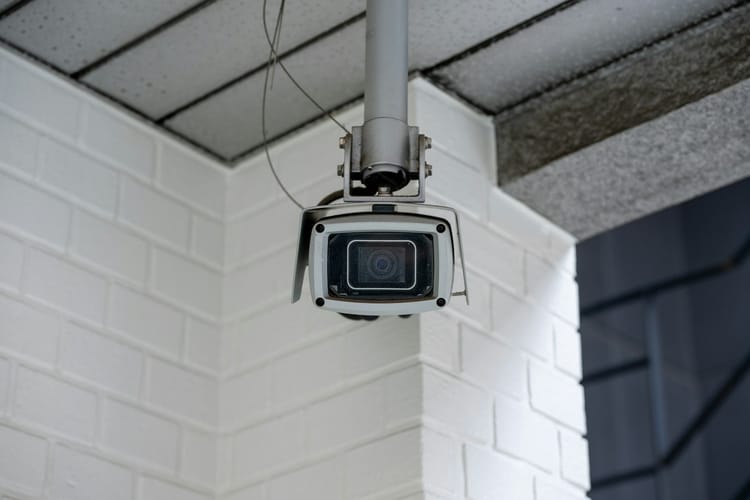From Apple to Europol: Big Tech and Big Government Race to Control Our Data

As AI surges and surveillance fears grow, governments and tech giants are redrawing the boundaries of digital privacy. From Apple’s new data rules to Europol’s secretive AI push, Meta’s controversial smart glasses, and Australia’s social-media ban for teens, 2025 is shaping up as a global showdown over who controls our online lives.
Apple Tightens App Store Rules to Curb Personal Data Sharing with AI Firms
Apple has updated its App Review Guidelines to require that apps explicitly disclose and obtain permission before sharing user data with third-party AI systems. The policy change, which expands on existing privacy rules like those aligned with GDPR and CCPA, specifically calls out “third-party AI” for the first time. This is signaling Apple’s heightened focus on how apps use emerging AI technologies. The move comes ahead of Apple’s 2026 rollout of an AI-enhanced Siri, partially powered by Google’s Gemini, and appears aimed at preventing other developers from leaking personal information to external AI providers.
The revised guidelines add "clarity" at a time when apps increasingly rely on AI features for personalization and functionality but may blur the lines around data usage. It’s still unclear how aggressively Apple will enforce the rule, given the broad range of technologies that could qualify as “AI”. The update arrives alongside other guideline changes tied to Apple’s new Mini Apps Program and adjustments affecting creator apps, loan apps, and crypto exchanges which are now listed among apps operating in highly regulated industries.
Meta’s Ray-Ban Smart Glasses Spark Fresh Privacy Battles Across Reddit
Meta’s revived smart-glasses push has reignited a decade-old debate about wearable cameras, with Redditors sharply divided over whether Ray-Ban Metas represent a harmless gadget or a looming privacy threat. While the $400 glasses offer a 12MP camera, voice commands, and AI features, many users argue the core issue remains unchanged since the Google Glass era: people don’t want strangers filming them at close range. Some furious commenters call the glasses a “green light for voyeurism,” warning that consent becomes murky when cameras are mounted on someone’s face. Others counter that public filming is already legal in many places, regulated mainly by how footage is used and not how it’s captured.
Yet the community is far from unified. Some argue concerns are overstated, noting that spy devices already exist and that Meta’s glasses have short-range, wide-angle lenses with visible recording indicators. Practical worries also surfaced like the risk of mugging or data theft but experienced users say the glasses store little locally and become useless without being paired to a phone. Meanwhile, some Redditors push for social pressure, suggesting people publicly call out wearers to discourage unsolicited recording. As big tech revives face-mounted cameras, the debate underscores a larger question: are smart glasses simply another gadget in a surveillance-saturated world, or a step too far toward normalizing close-quarters recording?
Inside Europol’s Expanding AI Machine: Data Ambitions Trigger Privacy and Oversight Fears
Europol is quietly amassing vast amounts of personal data to fuel an expansive, secretive AI programme aimed at reshaping policing across the EU. Internal documents and expert analyses reveal that the agency has been developing machine learning models since 2021, using massive datasets (some copied from high-profile encrypted messaging busts like EncroChat and Anom) to automate investigative work. But regulators say these efforts have repeatedly sidestepped safeguards, with the European Data Protection Supervisor uncovering missing documentation, overlooked bias risks, and incomplete impact assessments. As Europol pushes further, from child sexual abuse material detection to facial recognition tools like NEC’s NeoFace Watch, watchdogs warn of severe consequences from inaccurate or overbroad AI systems that could misidentify individuals, expand mass surveillance, and erode fundamental rights.
Despite its growing AI arsenal, Europol has resisted transparency at nearly every turn and delaying FOI responses, heavily redacting documents, and withholding key technical information. Its internal oversight mechanisms appear weak, with the fundamental rights officer lacking meaningful enforcement power, while external bodies like the Joint Parliamentary Scrutiny Group have limited authority. Meanwhile, close contact with private actors such as U.S.-based nonprofit Thorn raises questions about influence and blurred boundaries between public security and private agendas. As the European Commission considers a major expansion of Europol into a “truly operational agency” with a doubled €3 billion budget, lawmakers and civil liberties advocates warn that the agency’s unchecked AI ambitions pose significant risks without stronger, enforceable oversight.
Australia Forces Big Tech to Block Under-16s as Platforms Shift From Resistance to Compliance
Australia is set to become the first country to ban all children under 16 from using social media, prompting Meta, TikTok, Snapchat and others to rapidly prepare for mass account deactivations ahead of the December 10 deadline. After a year of warnings about chaos, privacy risks, and user losses, platforms are now quietly embracing a low-friction compliance model: using their existing behavioral age-guessing algorithms to identify suspected underage users, pinging more than a million teens to download their data, freeze accounts, or lose access entirely. Only when users contest a block will companies deploy third-party age assurance apps. Tools still prone to errors such as flagging 16- and 17-year-olds or approving 15-year-olds, which could expose firms to hefty fines. Experts caution that implementation may be bumpy, especially for older teens without ID documents, but providers say most disruptions will be short-lived.
The legislation, driven by mounting concerns over youth mental health and amplified by political and media pressure, requires platforms to block minors without relying on parental approval. It has survived pushback from free-speech advocates, digital creators, and tech giants, marking a major global test case for youth protection online. With countries like Denmark and the UK advancing similar age-check regimes, regulators worldwide are watching whether Australia’s model (rooted in “reasonable steps” such as detecting VPN use) can function without major social backlash or mass migration to unregulated platforms. Analysts say the rollout could influence future international policy, with Australia now positioned as the proving ground for strict age-based social media controls.




